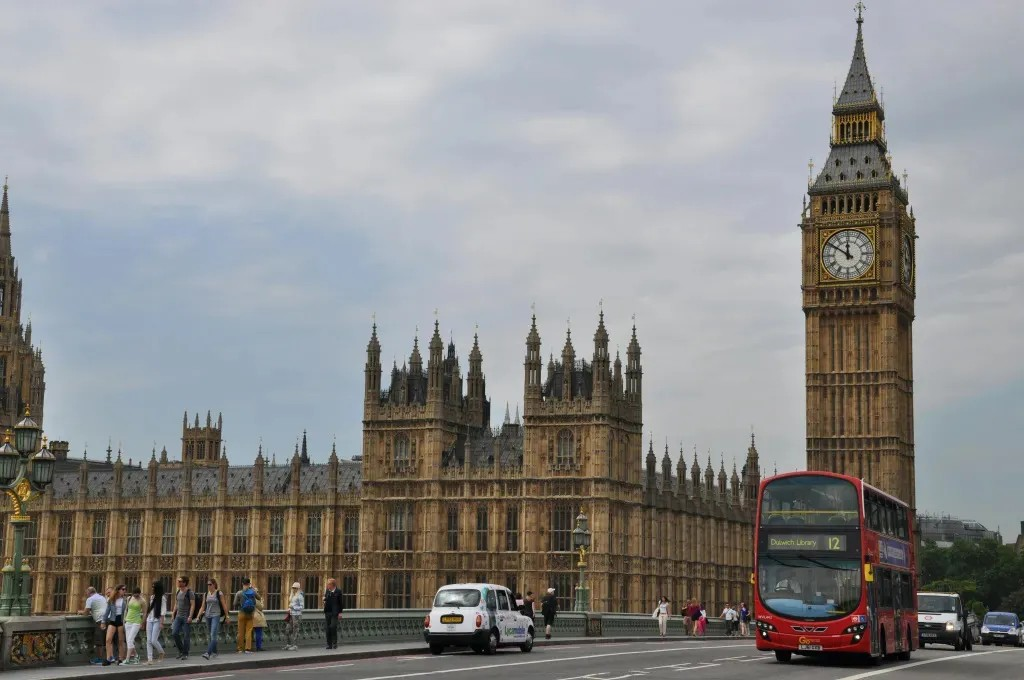Spring Statement: Chancellor’s £2bn down-payment for affordable homes overshadowed by social security cuts

The Scottish Federation of Housing Associations (SFHA) has called for increased investment in Scotland’s affordable homes programme and voiced “serious concerns” over social security cuts following the Spring Statement.
In a statement to the House of Commons yesterday, the Chancellor of the Exchequer, Rachel Reeves MP, announced a £2 billion boost for social and affordable housing in England, which is set to represent a down-payment of a larger funding settlement in the Spending Review in June.
The funding is set to assist local authorities and housing associations in bridging financial gaps for affordable housing projects and aims to support the construction of up to 18,000 social and affordable homes.
For the SFHA, any Barnett Formula Consequentials as a result of the announcement must be reinvested into Scotland’s affordable homes programme.
It comes after Scottish Government figures this week revealed the number of homes built by housing associations in Scotland last year had fallen by over a quarter.
SFHA chief executive Sally Thomas said: “With the number of homes built by housing associations falling by a quarter last year, the latest Scottish Government statistics again underline the scale of our national housing emergency.
“We note the additional £2bn in funding set out by the Chancellor ahead of the Spring Statement for affordable housing in England. If there are any Barnett Consequentials for Scotland as a result of this announcement, then it simply must be invested in Scotland’s affordable homes programme.
“Following the Chancellor’s Spending Review in June, we also need to see the UK and Scottish Government commit to a multi-year funding settlement for Scotland’s Affordable Housing Supply Programme.”
People ‘scared and uncertain’ about welfare cuts
The Chancellor’s Spring Statement was dominated by an announcement on cuts to social security after the Office for Budget Responsibility halved the UK’s growth forecast this year to 1%.
The government plans to implement stricter eligibility criteria for Personal Independence Payments (PIP) by 2026, aiming to reduce the number of claimants and achieve substantial savings.
Starting in April 2026, the health top-up for new Universal Credit claimants will be halved and subsequently frozen at £50 per week until 2030. Additionally, the standard Universal Credit rate for 2029-30 is set to decrease from a planned £107 to £106 per week.
Official reports estimate that these welfare reforms will result in approximately 250,000 individuals, including 50,000 children, falling into poverty. However, the Joseph Rowntree Foundation argues that this figure is underestimated, suggesting the actual number could be at least 350,000.
While it is yet unclear if these will be passed on to devolved social security in Scotland, the SFHA said it had serious concerns they would condemn the most vulnerable in society to greater levels of poverty.
Sally Thomas added: “Housing associations are already on the frontline of mitigating some of the worst effects of our underfunded and poorly-designed social security system, they know from experience the severe damage cuts have on social tenants.
“We need a social security system that provides an essential safety net for those who need it most, with dignity at its heart. Plunging more disabled people into deeper hardship is likely to lead to health conditions worsening and people being less able to engage with support, training and trying to return to work where and if they can.”
Spending cuts announced by the Chancellor risk harming some of the most vulnerable people in society,
Finance secretary Shona Robison agreed: “The statement from the Chancellor will see austerity cuts being imposed on some of the most vulnerable people in our society. The UK Government appears to be trying to balance its books on the backs of disabled people.
“Not content with these cuts, the UK Government is still expected to short-change Scotland’s public services on additional employer National Insurance costs to the tune of hundreds of millions of pounds. This will be felt in public services that people rely on up and down the country - services such as our NHS, GPs, dentists, social care providers, and universities.
“The UK Government’s choice to increase defence investment is welcome, but its choices to shortchange public services and deliver austerity cuts to some of the most vulnerable are deplorable.”
Citizens Advice Scotland (CAS) said that the planned cuts to social security will mean that ill and disabled people will bear the brunt of problems in the wider economy.
CAS chief executive Derek Mitchell said: “It’s important to understand the context of this. The cost of living crisis hasn’t gone away. Our CABs provide expert advice and support to tens of thousands of people across Scotland who are already really struggling with essentials like food and fuel.
“Two thirds of people supported by Scottish CAB advisers are disabled or have a long term health condition. So we know that people are scared and uncertain about the future, and our advisers are bracing for the impact of yet another wave of welfare reform.
“Social security is an investment in all of us – any of us could fall ill or become disabled. There are no circumstances in which ill and disabled people should bear the brunt of the problems in the wider economy.
“It’s in all of our interests to ensure the system works and is properly funded. We need more investment in social security, not less. The cuts announced today are in complete contradiction to this and will only cause more hardship and harm.”
Campaigning organisation Generation Rent is warning that these proposed cuts to disability benefits, alongside the freezing of Local Housing Allowance, will hit private renters hardest as it’s by far the most expensive tenure type, potentially forcing people out of their homes and into expensive temporary accommodation.
Ben Twomey, chief executive at Generation Rent, said: “Pushing people into poverty doesn’t help them to escape it. It never has and it never will. Government plans to reduce the number of people who can claim PIP, while limiting Universal Credit for those under 22, will drive people into debt, poverty and homelessness. Research shows just 9% of private rented homes are accessible, meaning many renters living with a disability are forced to pay inflated rents due to a lack of choice, or live in homes that aren’t suitable for their needs.
“Many tenants use their PIP to supplement their rent costs, meaning these changes could lead to them being forced out of their homes. For renters under 22, the housing element of their Universal Credit often doesn’t cover their rent, meaning top ups can be a lifeline that keeps a roof over their head.
“Forcing people into poverty will be expensive for the taxpayer too. The cost will simply shift. Councils will have to provide temporary accommodation at eye-watering rates and the impact on health will add to pressures on the NHS. We strongly urge the Government to reverse these proposals to cut welfare spending.”
GDP quantification of planning reform
Homes for Scotland (HFS) has welcomed confirmation by the Chancellor and Office of Budget Responsibility that planning reform being undertaken in England would add £6.8bn to real GDP in 2029-30 and £15.1bn within ten years.
The government plans to construct 1.5 million new homes by 2030, the highest level of housebuilding in over four decades, facilitated by streamlining planning permissions to expedite the development process.
Mandatory housing targets will be reinstated for local authorities, aiming to ensure consistent and increased housing development across regions, while changes to national planning policies are designed to ease development procedures, encouraging more rapid construction and addressing housing shortages.
The initiatives are expected to raise property sales from 290,000 per quarter in late 2024 to 370,000 by 2029, Ms Reeves said.
Kevin Murphy, HFS director of planning, said: “It is positive to see the level of ambition set out by the UK Government in the Chancellor’s Spring Statement today, reaffirming its intent to accelerate new housing delivery in conjunction with reform of its respective planning system. In doing so, the Chancellor has accurately acknowledged the significant economic benefits that new home building can bring, not just across local communities but nationally, in addition to the wide-ranging social benefits such as improved health and education outcomes.
“At the forefront of English planning reform, sits the national objective to deliver 1.3 million new homes by the end of the current Parliament, with the re-introduction of mandatory housing targets across Local Authorities.
“HFS has consistently advocated that this level of ambition be reflected by the Scottish Government, and has called for the adoption of an all-tenure home building target of at least 25,000 homes to be delivered annually to ensure that new housing delivery is recognised throughout Scottish Government Directorates as central to achieving the First Minister’s priorities for Scotland of eradicating child poverty, growing the economy, tackling the climate emergency and reforming public services.
“Issuing a clear call to deliver an all-tenure target of at least 25,000 new homes each year in Scotland would give clear strategic direction and intent between national and local policymakers to prioritise new housing delivery. Returning to pre-recession levels of home building in Scotland would generate £3.7bn in total economic output to the Scottish economy and support 87,000 high quality jobs each year.
“In the last two days, statistics have highlighted that new housing starts and completions have declined for the third consecutive year whilst planning processing times for new housing remain far above the statutory timescales in Scotland. In the context of the ongoing housing emergency, these statistics must be a clear call to action for the Scottish Government to implement similar levels of radical reform.”









